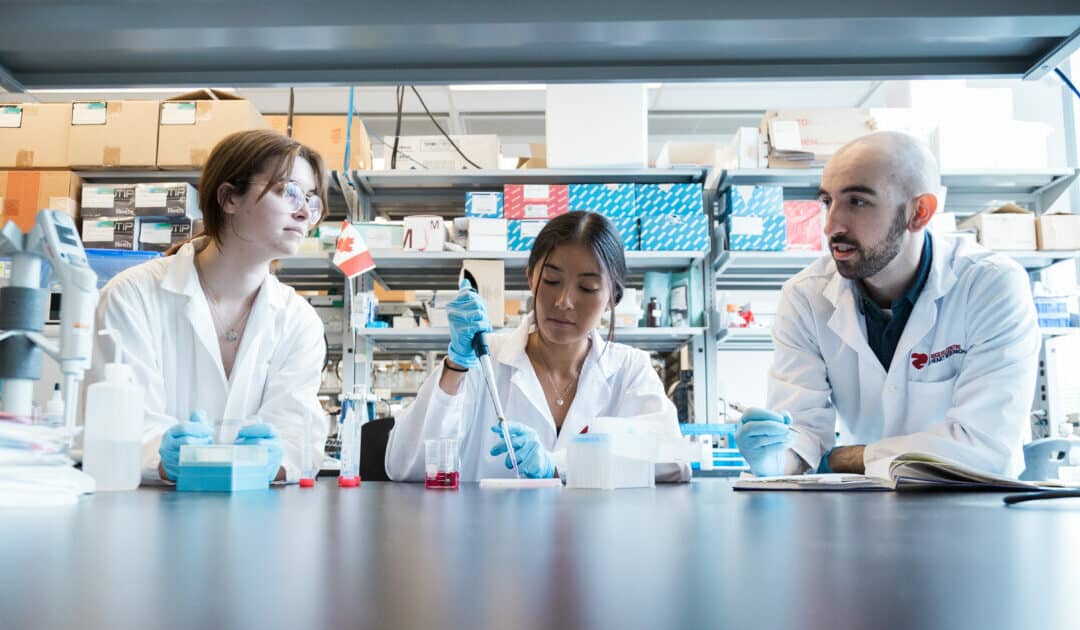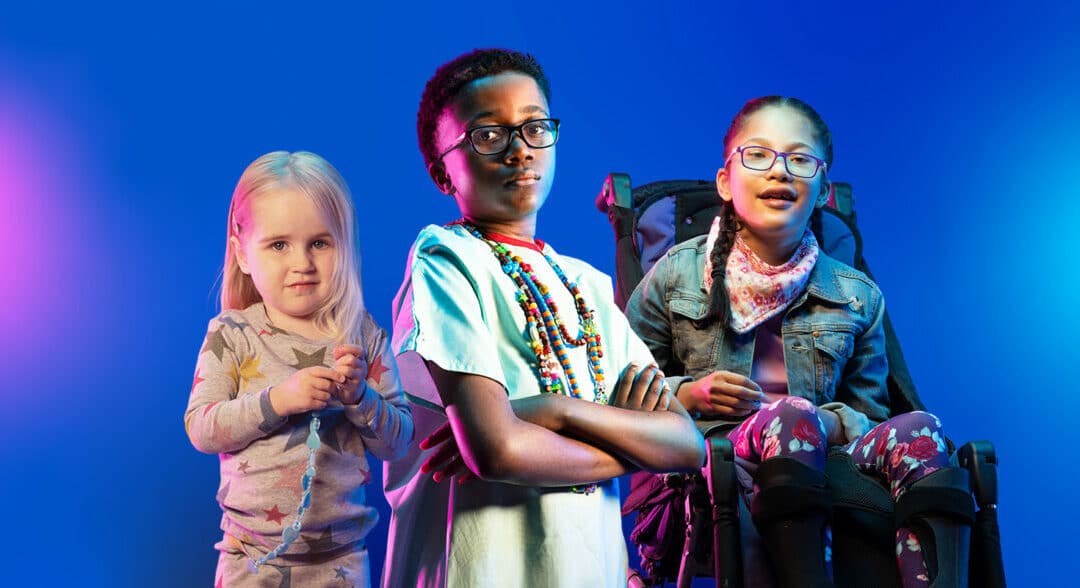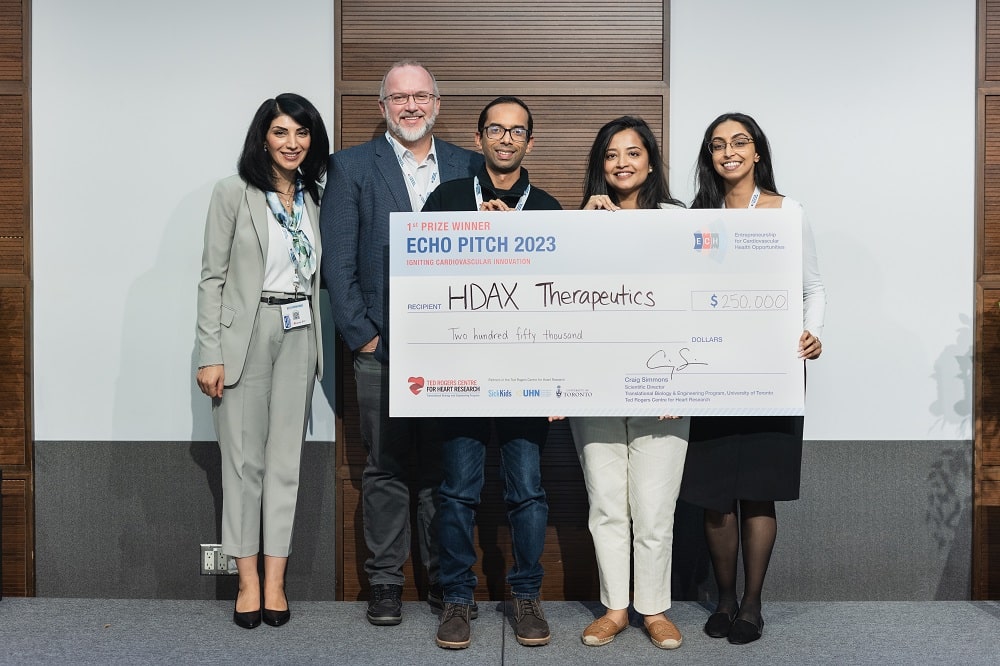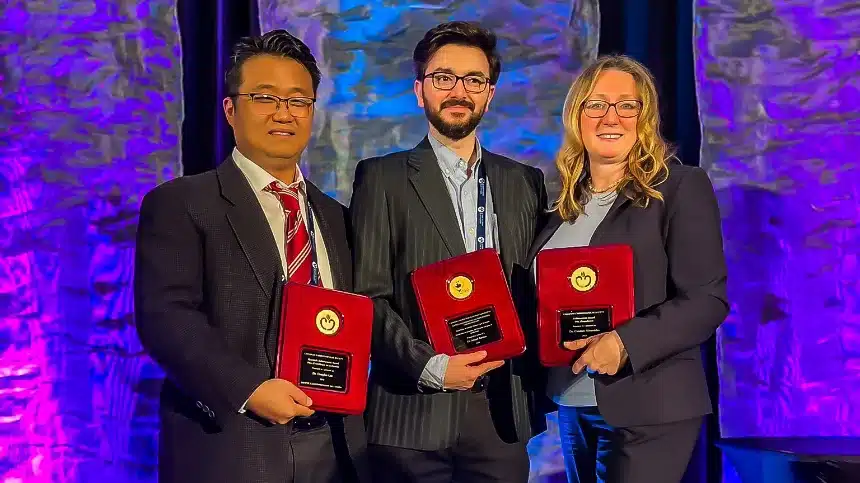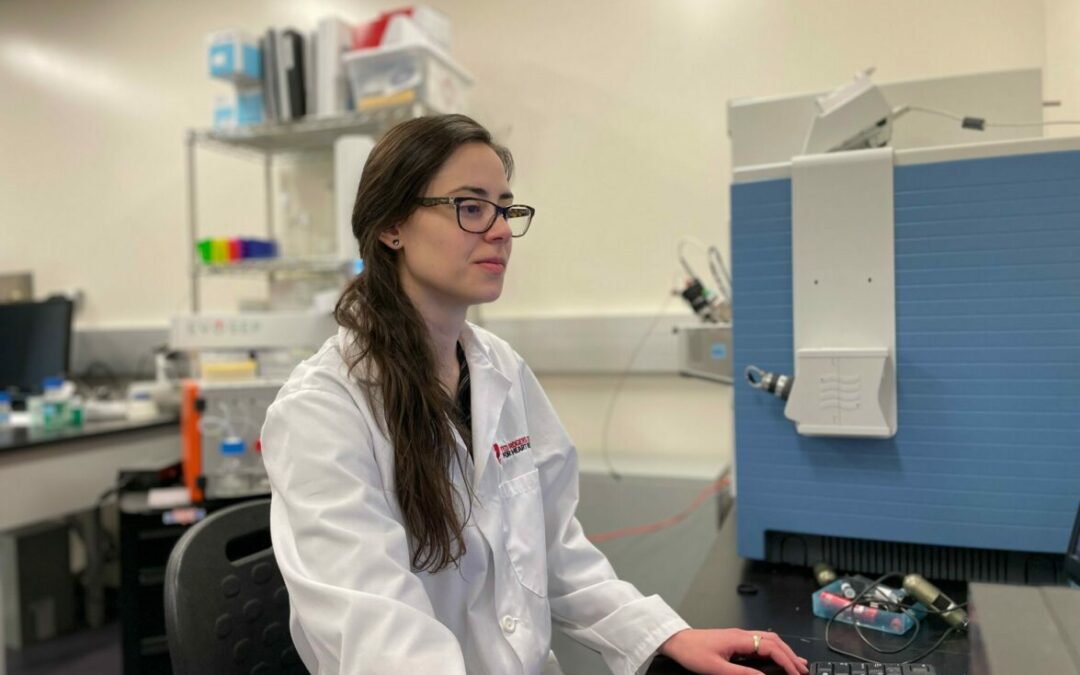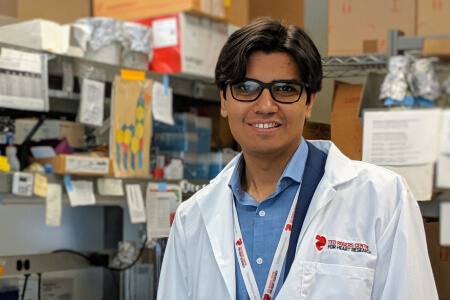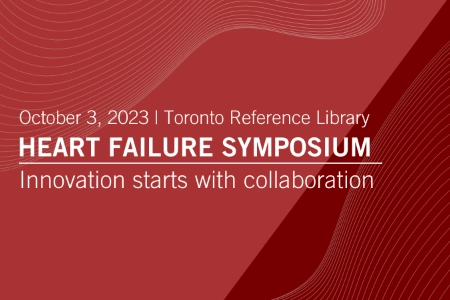By Linda M. Riches
Linda lives in Prince George, B.C. She reached out to the Ted Rogers Centre to share her story about what happened when she was suddenly diagnosed with congestive heart failure. She teaches drama, film production and mindfulness to students in grades 8-12.
She is pictured above with her son Dylan.
~~~~~~~~~~~~~
I thought it was bronchitis. Although I had planned to get up early for a long drive to be with family, I woke feeling ill. It felt like my chest had become congested overnight.
For the next three days I took cold medicine and drank mugs of tea. It was hard to breathe so I propped myself up on pillows and practiced mindfulness techniques as I waited for the bronchitis to subside. I didn’t feel the whack to the side of my head.
On day four it was time to see a doctor and drove to a clinic. Walking in, I had to stop every few steps to catch my breath. I learned it would be a four-hour wait, and I was about to drive home but my inner voice said to go to the hospital.
I didn’t tell anyone about the pain, just that I couldn’t seem to catch my breath. After waiting in a busy emergency department I finally told the triage nurse that my chest was hurting. I immediately skipped the queue and was brought in. Pneumonia? I thought.
A life that has changed course
They did an electrocardiogram, and I was hooked to a heart monitor. I asked the doctor why she was curious about my heart. She watched the monitor for a while and suddenly transferred me to a unit to be closely monitored.
Clinicians came and went, asking loads of questions, finally saying I needed to stay for tests. When I asked if I could come back as an outpatient for the tests as I had students to teach the next day, a doctors asked me: “Do you know what congestive heart failure is?”
I felt a whack on the side of my head.
I knew, well I thought I knew, and a few nights earlier I had actually dreamed about heart failure. Tears rolled down my cheeks because I didn’t want this, I wanted to go home and get up the next day and be a teacher. The doctors at the foot of my bed seemed uncomfortable and said they’d give me some time to think about everything.
Reaching toward mindfulness, I took long breaths, and allowed myself to feel what was going on in my body. I used the anchor of my breath to find stillness. Inside my head I repeated a phrase that is posted in my kitchen: I will be present with whatever arises, no matter what it is. I thought of my mindfulness mentors and colleagues and what they might say were they standing by my bed. For the moment, I let go of needing to leave and knew that my life had just changed course.
Why was my heart failing?
So, over four days the medical staff conducted tests to find out why my heart was failing. I felt like I was losing control of my life. I did not want to read or watch TV; I did not want to visit with anyone. Amidst a noisy hospital, I put in my earplugs and spent my alone time engaged in mindfulness. The one thing I could control was what was going inside my mind. At some point I thought I made peace with what was happening and how I was feeling about everything.
Then one of the doctors showed up to say they had to send me to a specialized cardiac hospital. He was clear in his explanation to me and answered all of my questions, but then he surprised me. He asked me why I taught drama, what was it about that subject that brought out my passion. He connected with me on a personal level, which I desperately needed at the time. Other medical staff had been respectful and caring, but were focused on working toward a diagnosis. I wish now that I had thanked him.
It reinforced the power of being truly present, and something else equally important: each of us needs to be seen. No matter what the situation or the location we need to know that we are more than a patient, a doctor, a customer, a student….
My ultimate fear
The next hospital felt like a well-oiled machine; I guess when you are known for getting results, that becomes the focus. Most people don’t stay long in the cardiac unit so roommates keep changing. Each patient who came through the door had their pain, their fears, and their own issues, and I, just like them, had to choose how to respond to each new obstacle.
Did I have fears? Just one: that I wouldn’t see my son again. He was travelling oversees for an extended time so this was a legitimate fear. I had a vivid sensory vision of my parents waiting for me in the afterlife – but not yet I said. As I lay still during some of my tests I knew that I had to face that fear. Where did I feel it in my body? Was it true that I might never see him again? What did that mean for me? Was it me I was afraid for or was it him, or both of us? Was the fear about something else?
Over a claustrophobic 90-minute MRI session, I had to remain still, change my breathing as directed by the computer and not fall asleep. It was in fact the perfect conditions for me to do some deep thinking, and practise some loving kindness towards myself. I knew that I needed to bathe myself in goodness, in life and love, and let stillness come.
While I waited for the test results I knew that this was an opportunity for me to sit with not knowing. If they did not find the reason for my heart failure what did that mean for me? Would I be okay with that?
Facing my journey
Fortunately, I was reunited with my son, who came with me to the hospital for follow-up appointments. More tests and meetings with the cardiac team.
Sometimes I think that I’ve finally understand how I actually feel. But then, again, wham, up the side of the head: reality strikes. I reach for my mindfulness practice, which reminds me that I can’t take anything for granted.
I’ve been told that, outside of a new medication that may prolong my life, there is little that can be done for me. I am so thankful when I interact with a caring, sensitive doctor in the clinic, who takes the time to carefully explain what is in their control and what is not.
One day earlier this year aboard a flight home to Prince George after an appointment in Vancouver, I sat beside a fellow patient of the same hospital. In a matter of four days he had experienced a heart attack, been medevac’d, had stints put in his heart and headed home to resume his life. He was sitting on the plane drinking pop and eating salty snacks. He said he’d be back at work in a couple of weeks.
Meanwhile, I was afraid to eat or drink anything and I didn’t feel like I would ever be able to work again. I found myself wishing that I could have the same issues as this man, because mine seemed endless.
But we all have our own journeys. I would never have quit smoking, changed my diet and exercise, or stopped working to focus on my health if it had been only a four-day bout. I know me: I would have forgot over time and returned to an unhealthy lifestyle.
The only way forward
For months my mindfulness helped me embrace this new reality and new lifestyle. But in late spring 2018 I hit a wall. Despite my mantra of “being present with whatever arises” I was struggling. All those whacks I’m writing about were causing my body and mind pain. I needed to effect some kind of change.
I missed being around others in my mindfulness community, so I looked for a meditation retreat. I found one that wasn’t too expensive and spent a weekend in silent meditation. It was wonderful to meditate with a large group of people, being guided by an experienced teacher.
I thought my solo practice was enough. But now I understand that I need community. I’ve even offered to lead free mindfulness sessions for heart patients in my area, and I hope they take me up on it.
Through this upside-down journey, for my sake and for my son, I will look to stay in the present moment. It’s the only way forward when so much is out of my hands.
********
If you’d like to share your story about heart failure, please send us an email.




